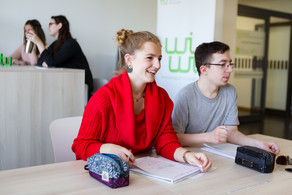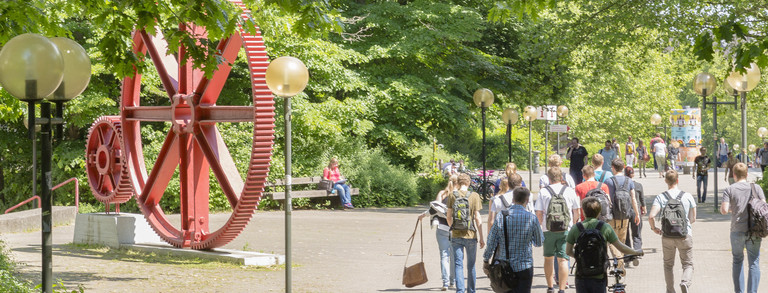Research
The Research task force works on further sharpening the department's research profile, identifying (interdisciplinary) cooperation opportunities and supporting the acquisition of third-party funding. To this end, a Research Officer records and communicates relevant calls for proposals and also acts as a link to the TU Dortmund University's Office of Research Support Services.
Members:
Prof. Dr. Philip Jung (chairperson, Macroeconomics)
Prof. Dr. Manuel Wiesche (Digital Transformation)
Dr. Lars Metzger (Research Officer, Methods)
Ulrike Tonscheidt (Finance Officer)
Publications can be found on the websites of the teaching and research areas and (in excerpts) under the current research news.
Prof. Dr. Jung presents the task force's background and goals:
Question 1: Professor Jung, research is one of the department's central tasks. Why is it necessary to set up a task force on the subject?
One of the reasons for the existence of a university is the exploitation of "increasing returns to scale", i.e. the research but also teaching results of all department members as a whole should be greater than the sum of the results that each member would achieve if left to his or her own devices. If this were not so, all researchers could retire to a desert island and we would no longer need a local university. In order to achieve this goal, however, coordination is needed, since everyone does not always have the knowledge of what all his or her colleagues are currently researching. The task force tries to fill this coordination role and to explore possibilities for cooperation - i.e. collaborative projects - between the individual research and teaching areas.
Question 2: Why is the acquisition of third-party funding a central concern of the department?
Third-party funding allows us to increase the quality of research. This has strong feedback on the quality of teaching, as it allows the faculty to offer both smaller courses and, in particular, a greater depth of courses through a higher staffing ratio. The specialized knowledge generated can thus be fed back into the course, allowing students to find more appropriate offerings that reflect their own interests.
Question 3: How can the task force specifically support the department's researchers?
The task force sees itself as a coordination mechanism between the research and teaching areas. On the one hand, it would like to offer colleagues targeted information about call opportunities. But more important than the mere dissemination of information is the development of an infrastructure that enables applicants for third-party funding to draw on the expertise of the department in a targeted manner. The knowledge of which questions can be answered with which methods at which research areas is distributed decentrally and not accessible to all. The task force specifically tries to explore cooperation possibilities for applicants who may need specific skills for their projects that they themselves do not have at their research area, but which are available in the department.






